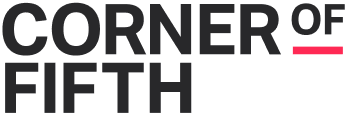
In today’s cluttered marketing landscape, how do you stand out when pitching a client, or market your own business in an impactful way? Let’s explore.
Developing a marketing program on behalf of a client in any industry, especially in a marketplace where attention span averages between 20-30 seconds, is an artful task. There are so many things to consider—desired audience targets, marketing mediums and budgets. Ready to get both creative and analytical, but no idea where to start? You’ve come to the right place. Here’s five questions to ask yourself as you begin the process.
How forward-thinking is your client, and how accessible are they for feedback?
First foremost, you must determine how ‘out of the box’ your thought process will be for the client or business you’re focusing on. Certain clients take a traditional approach to their advertising and content methodologies, and it’s important to know that upfront. On the flip side, is your client looking to delve into the latest trends and apply them to what they do, such as AI, influencer marketing or highly elevated experiential experiences? This will help rein your brain in and give you a starting point, as well as boundaries. Dually, think about how accessible the client or business is for feedback. Do you have the opportunity to pitch them idea seedlings throughout to ensure you’re on the right path, or do you have one shot to get the program right? Again, boundaries to establish—it’ll help calm and wire the process for you throughout.
What is the client doing right, what are they doing wrong, and what are they not doing at all?
Market research on both your desired client/business for the project you’re working on, as well as the industry/related industries they are aligning with, is a key part of the marketing process. There is no business that’s truly doing everything perfectly—even the most marketed brands with the largest budgets undergo transformation, transition, and scandal every once in a while. Think about what your target client/business is doing right—where have they achieved success, what goals have they reached for themselves in the last 1-2 years and what growth trajectory are they on? That will help fuel what you know to be important to them. Think about what their failures have been—if you were working with them during those times, what would you have done differently, and how would you have provided a proper solution? Lastly, think about what they aren’t doing yet—where’s a point of growth for them that you can point out and showcase value for investment in? As I like to say, there’s always opportunity for opportunity. Help them seize it!
What do their consumers/audiences care about?
Every brand/business has a different desired message. What’s the focus in what you’re working on? What does the desired consumer/audience segment care most about—is it how they look, how they feel, how they work, how they eat, how they travel, how they ‘play,’ how they socialize, what they use, where they go? Put yourself in their shoes, search the brand’s social feeds, read their messaging and engage as if you were a VIP consumer of their brand or product (even if you never were before). This will put you in the right creative mindset to speak to their needs, while also considering what’s missing from them.
What is the preferred medium of reach and delivery of solution/what’s the most important platform (s) to focus on?
Directly related to the outcome of this program, what will what you create be used for? It’s important to ask yourself about distribution, mediums and how to customize based on those answers. Will you be working on a commercial for a streaming app, or are you working exclusively on an Instagram campaign that geo-targets a specific area? Are you creating a print campaign or working exclusively on digital concepts? Are you developing audio programming for a podcast, or are you delivering an Ai-centric tech solution? Where your ideas and programming is going heavily affects how it will perform, as well as your recommendations for said mediums. If you get the opportunity to work with the client/brand on this front, even better. Create your program and recommend where it should live for ultimate success.
How will they measure success at the end?
Last, but certainly not least, the most important question you may ask yourself in the marketing process is how your client measure success in the end. What are the metrics they are looking at? What will you need to deliver on—is it sales, impressions, client acquisition? It’s important to create a program with parameters that are accessible and controllable by you and your team, and that you don’t overpromise and underdeliver.
As a marketer, you’re consistently tasked with working with both sides of your brain (the creative and the analytical). The marketing process should be challenging, but in a fun way. I hope you find these questions to be a helpful starting point—if you’re like me, put pen to paper with all five as a starting point with each exercise and let your mind work its marketing magic.

